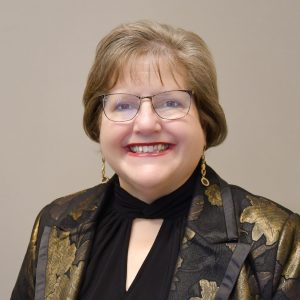The grant will provide resources to better prepare the next generation of nurses with the knowledge and confidence they need to have conversations that ultimately promote public health.
April 11, 2022
April 11, 2022
Story written by: Brian Consiglio, 573-882-9144, consigliob@missouri.edu
Original story posted on showme.missouri.edu.
As an assistant teaching professor in the MU Sinclair School of Nursing, Stefanie Birk knows there are nursing students unsure of how to talk with people hesitant about getting a COVID-19 vaccine. Being a public health nurse herself, Birk has been in similar situations and is passionate about equipping the next generation of nurses with the knowledge and confidence they need to have conversations that ultimately promote public health.
To help increase knowledge and confidence about the COVID-19 vaccine among nurses and the communities they serve, Birk and an interdisciplinary team of educators and researchers at the University of Missouri have earned a grant from the American Association of Colleges of Nursing (AACN) with funding through the Centers for Disease Control and Prevention (CDC).
“We want to prepare our nursing students as they get ready to graduate and go on to become nurses serving our communities,” said Birk, who teaches public health classes to hundreds of undergraduate and graduate students in the MU Sinclair School of Nursing. “By incorporating these lessons into their current curriculum, they will be better prepared going forward to have effective conversations with people who may be feeling hesitant about the COVID-19 vaccine.”
The content will be incorporated into Birk’s current ‘nursing in communities’ course for the spring 2022 semester as well as future semesters. The updated course content will cover topics including vaccine development, safety and efficacy, vaccine hesitancy, differentiating between factual, evidence-based information and misinformation related to COVID-19 vaccines, motivational interviewing, health communication and social media marketing.
“We want our students to not only have knowledge about the COVID-19 vaccine, but also to feel empowered and confident to engage with members of local communities who might feel hesitant about it, and to target key rural and underserved populations in Missouri where vaccine hesitancy may be more common and the vaccination rates might be lower,” Birk said.
Birk also will work with faculty and students from the Missouri School of Journalism to identify effective communication strategies, including print advertisements, billboard advertisements, radio advertisements and social media marketing strategies. The project will end in June, when the students, some of whom may be graduating in May, will earn a certificate signaling they have completed the curriculum. Resources from the curriculum will be shared with nursing programs at Lincoln University and Central Methodist University.
“When having these conversations, part of our health promotion strategy is to acknowledge people’s feelings, listen to what their reservations are, and then use encouragement and motivational approaches,” Birk said. “Whether it is in a clinical setting or with family and friends, we want to offer support and promote public health outcomes.”
Birk is collaborating with Mary Fete, Valerie Bader, Deidre Wipke-Tevis and Malaika Gallimore of the MU Sinclair School of Nursing, and Jon Stemmle and Kathleen Rose of the Missouri School of Journalism.


